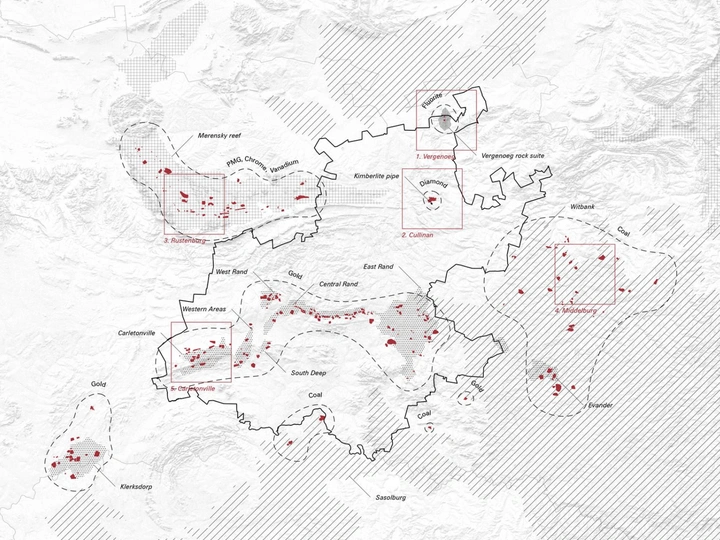Unveiling Southern Post-Industrial Landscapes

Sebastian Hitchcock
Mariano Cuofano is an architect-researcher dedicated to ethnographic research and interdisciplinary studies. He holds a Bachelor's degree in Architecture from the University Federico II of Naples, a Master of Research from the Royal College of Art in London, and a Post-master in architecture and urban design from The Berlage Center at TU Delft. He has collaborated with prestigious firms such as RCR, Steven Holl Architects, and Foster + Partners. Mariano is Vice President at NIB, an independent school of architecture, and a mentor for the New European Bauhaus. In 2022, he Published Domestic City by Ugo La Pietra as Managing Editor at Plectica Editrice. His work has been exhibited at the Italian Pavilion of the Venice Biennale and at HET Nieuwe Instituut and Guggenheim Bilbao. His research is published in journals such as Volume and Arhitext.
Sebastian is an architect and urban designer with a Post Masters from Berlage, TU Delft, and a master's from the University of Cape Town, where he was top of his class and a Norman Foster Foundation student. He has contributed to exhibitions at the Guggenheim in Bilbao, Het Nieuwe Instituut, and the Rotterdam Architecture Biennale. His diverse experience includes working with architectural studios, a property development start-up in Cape Town focused on affordable housing, and a sustainable modular tiny-home factory in Amsterdam. Sebastian also manages a small firm for private projects and teaches at the School of Explorative Architecture (SEA) and the University of Cape Town.
Mariano and Sebastian bring extensive knowledge and experience to the field of architecture and urban design. They are committed to interdisciplinary research, sustainable and affordable housing solutions, and exploring socio-economic impacts on the built environment. Their combined efforts aim to inspire the next generation of architects and urban designers, fostering a more inclusive and thoughtful approach to shaping cities and communities.
This research presentation builds upon the groundwork laid by Project Global at The Berlage, 2022, focusing on the post-industrial condition through the contrasting landscapes of Gauteng and South of Italy. Through a rigorous examination of mapping methodologies and their inherent biases, the presentation aims to illuminate the intricate dynamics of industrialization, urbanization, and landscape degradation.
In Johannesburg the ramifications of industrialization are deeply entwined with issues of race, geography, and economic sustainability, resulting in a landscape marred by pollution and resource depletion. Utilizing advanced mapping techniques and satellite imagery, the transition from industrial to post-industrial epochs is vividly portrayed, prompting critical reflections on the enduring consequences of this transformation.
Conversely, Naples presents narratives, where the ancient cityscape intersects with contemporary challenges posed by post-industrialization. Through an in-depth analysis of urbanization processes, ethnographic studies, and the dynamics of productive landscapes, the presentation unveils the emergence of a post-genocide phoenix, symbolizing resilience amidst historical traumas.
This research transcends conventional perspectives on landscape management, advocating for a paradigm shift towards envisioning alternative futures. By embracing the posthuman condition, we are compelled to reimagine the spoiled landscape as a catalyst for transformative possibilities. The investigation aims to identify similarities between two southern regions on different continents: Gauteng, the wealthiest region of Africa, and South of Italy, one of the poorest and most controversial in Europe. Common points such as urban uncertainty, adaptive capacity, and vernacularity are explored. This study forecasts possibilities for dwelling within spoiled, altered landscapes, adapting to unrecoverable conditions while seeking beauty amidst pollution and frustration.